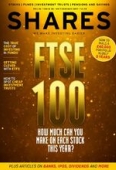Archived article
Please note that tax, investment, pension and ISA rules can change and the information and any views contained in this article may now be inaccurate.
Using the Z-score to find the cheapest trusts

One of the key points to check when buying an investment trust is the discount or premium to net asset value (NAV). It always feels like a bargain if you can buy the shares for less than the underlying portfolio is worth, but it is important to dig a bit deeper.
An investment trust trading at a discount such as 5% may look like good value, yet if the shares normally change hands 10% below their NAV then it is actually quite expensive.
This is where the Z-score can help. It is calculated by working out the difference between the current discount and the average discount measured over the last year and then dividing it by the standard deviation of the discount over the same period.
Ewan Lovett-Turner, director, investment companies research at Numis Securities, believes the Z-score is a useful measure of relative valuation.
‘It is based on the theory that discounts are normally distributed and exhibit mean reversion characteristics, although this is not always the case and discount ranges can shift over time.’
The Z-scores are reported in the financial press on a fairly regular basis and they are also available on the Morningstar website.
If you decide to use them you need to be aware that they can change quickly as the discounts can widen or tighten dramatically over the course of a single day.
TRUSTS WITH ATTRACTIVE VALUATIONS
There are some well managed investment trusts with low Z-scores that are trading at attractive valuations.
One highlighted by Numis at time of writing is Law Debenture (LWDB) trading on a 12.2% discount (versus an average of 9.7% over the last 12 months) with a Z-score of -1.2.
‘Law Debenture is differentiated from other investment trusts by its unique structure consisting of two parts: an equity portfolio managed by James Henderson and a group of fiduciary services businesses, which provides a boost to the yield, currently 3.1%,’ explains Lovett-Turner.
The investment trust underperformed its global peers around the Brexit vote because it has a high weighting in the UK and suffered from sterling weakness. Yet it has a good long-term track record and benefits from low ongoing charges of 0.45%.
Other mainstream funds that look cheap include Perpetual Income and Growth (PLI) and JPMorgan Mid-Cap (JMF), both with Z-scores of -1.6. Ryan Hughes, head of fund selection at AJ Bell, says the latter looks particularly attractive.
‘JPMorgan Mid-Cap has had a poor year of performance due to the Brexit referendum, significantly underperforming its benchmark and as a result the discount has widened steadily over the past 12 months.
‘However, the management team have a long track record of performance and have outperformed the FTSE 250 Index in four of the last five calendar years.’
DON’T FORGET THE FUNDAMENTALS
Z-scores can be a useful starting point, but it’s important not to forget the fundamentals. A case in point is Lindsell Train (LTI), which based on a 13-week Z-score is one of the cheapest investment trusts on the market. This is due to a massive fall in its premium, yet it is still trading 27.5% above its NAV.
‘While the Z-Score is an indicator of value against history, it does not tell you how the trust will perform going forwards. Nobody should simply invest on the basis of a cheap Z-score,’ advises Hughes.
Another misleading example is peer-to-peer lender Ranger Direct Lending (RDL), which at time of writing had a Z-score of -1.3. Shares in the fund hit a 12-month high of £12.06 in October 2016, but have since sold-off sharply and are currently languishing around £10.55.
‘I’m wary of niche trusts that look cheap and would therefore tread carefully on a fund such as Ranger Direct Lending,’ warns Hughes.
‘It has had problems with bankrupt online lender Argon and therefore it is entirely understandable that this trust has a discount wider than its long term average.’
The C shares in CATCo Reinsurance Opportunities (CATC) might be of more interest. These provide exposure to catastrophe insurance, but last year was a bad one for claims because of all the extreme events like the earthquake that hit New Zealand. As a result the trust is trading at a 3.5% discount, compared to an average 12 month premium of 0.3%.
MODEL PORTFOLIO
Investment bank Canaccord Genuity recently announced its model investment trust portfolio for 2017, with the selection based primarily on the underlying fundamentals rather than the premiums, discounts and Z-scores.
‘We believe that a pure valuation strategy (i.e. discounts equals cheap), is too simplistic; with markets now generally efficient; valuations are an important but secondary issue,’ explains Alan Brierley, the director of their investment companies team.
However, when deciding which funds to include, Canaccord looked for pockets of value by comparing the weighted average discounts of each investment trust sector with their one-year Z-scores.
This led Canaccord to conclude that the listed private equity sector was attractively priced, with the selections for the model portfolio being HarbourVest Global Private Equity (HVPE) and Pantheon International (PIN).
HarbourVest Global is a private equity fund-of-funds that returned 36% in the last 12 months and this helped its discount tighten to 17% compared to its one year average of 24%. Pantheon has been through a similar experience with its 12 month gain of 40% resulting in the discount closing to 16%, which is well below its average of 24%. (NS)
Important information:
These articles are provided by Shares magazine which is published by AJ Bell Media, a part of AJ Bell. Shares is not written by AJ Bell.
Shares is provided for your general information and use and is not a personal recommendation to invest. It is not intended to be relied upon by you in making or not making any investment decisions. The investments referred to in these articles will not be suitable for all investors. If in doubt please seek appropriate independent financial advice.
Investors acting on the information in these articles do so at their own risk and AJ Bell Media and its staff do not accept liability for losses suffered by investors as a result of their investment decisions.

 magazine
magazine










